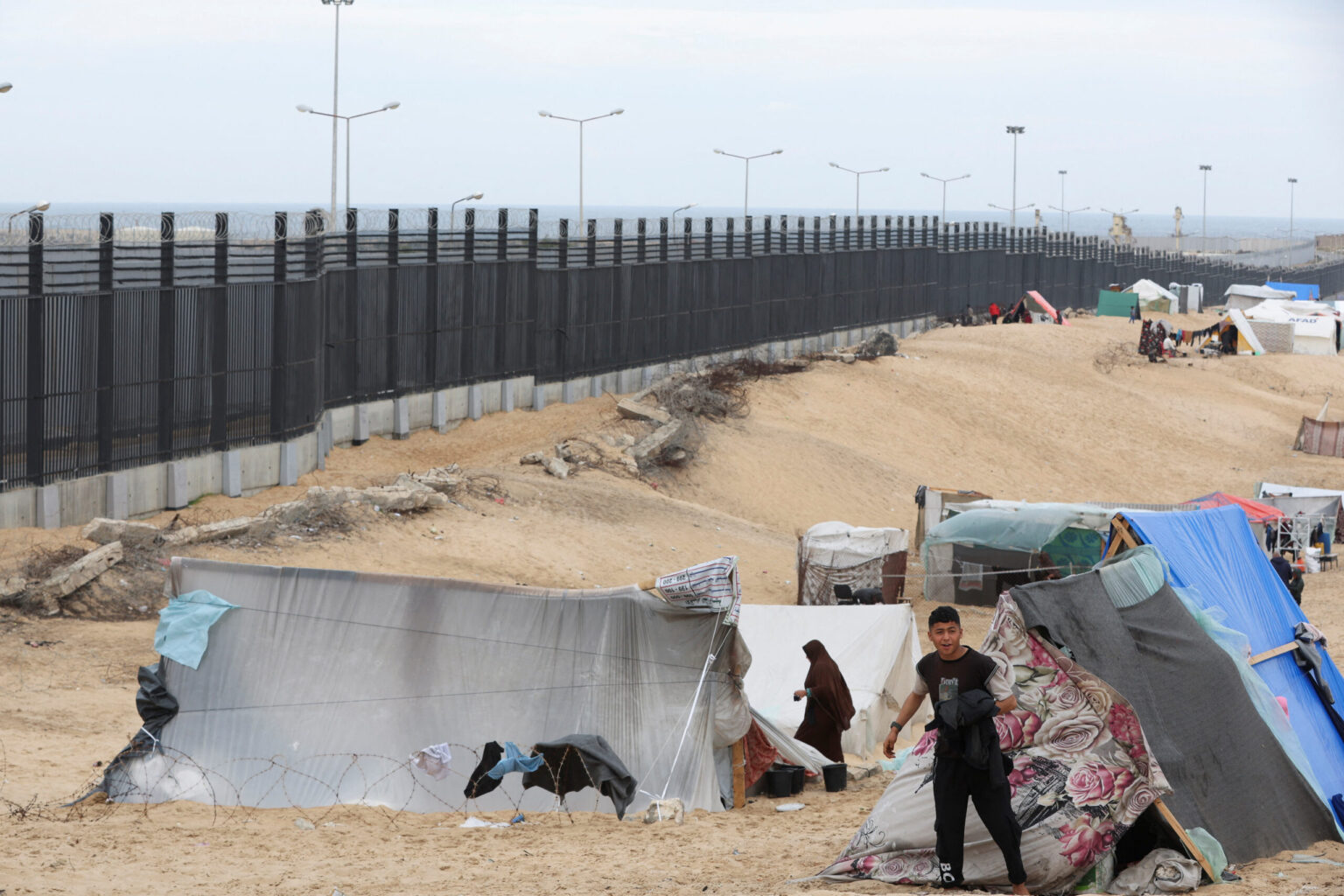Egypt’s Dilemma: Sisi’s Tightrope Walk on the Gaza Crisis
In the wake of Israeli Prime Minister Benjamin Netanyahu’s announcement of a planned ground offensive in Rafah, Egyptian President Abdel Fattah el-Sisi finds himself ensnared in a complex and high-stakes predicament. The anticipated Israeli operation aims to dismantle what is described as Hamas’ last remaining stronghold in Rafah, located in the Gaza Strip’s southernmost city. This military escalation portends humanitarian and political difficulties for Egypt, particularly concerning the potential surge of Palestinian refugees seeking sanctuary across its border.
Rising Tensions and Border Security Measures
Israel’s aggressive stance has prompted Egypt to reinforce its northern frontier, notably installing additional security measures, including the deployment of about forty tanks and armored carriers. A concrete barrier, complete with barbed wire and subterranean structures, has also been fortified to thwart Hamas from smuggling weapons into Gaza. However, the primary concern for Egypt remains a possible mass influx of Palestinian refugees into northern Sinai—a scenario Egypt is eager to prevent.
Historically reticent about permitting a mass displacement of Palestinians into its territory, President Sisi’s administration fears that such an eventuality could forever alter the demographic and geopolitical landscape, effectively upending the pursuit of a two-state solution and risking militant activities in Sinai. Egypt’s precarious economic state adds another layer of complexity to accommodating potentially hundreds of thousands of refugees.
Diplomatic Strains and Possible Fallout
Recent events have further strained diplomatic ties between Egypt and Israel, with Egyptian officials warning that a mass Palestinian exodus into Egypt could jeopardize the Camp David Accords. Sisi has purportedly conveyed this message sternly to US Secretary of State Antony Blinken to communicate Cairo’s predicament. Despite reassurances from Egyptian Foreign Minister Sameh Shoukry regarding the steadfastness of the peace treaty with Israel, Netanyahu’s ambitions to control the Philadelphi Corridor create a friction point.
Israeli plans to take control of the buffer zone, aimed at preventing arms smuggling and ensuring Gaza’s demilitarization, have elicited robust backlash from both Egyptian officials and various political factions. Adding to the tension, US President Joe Biden’s comments on Egypt’s reluctance to open the Rafah border crossing for humanitarian aid have been refuted by Cairo, which accuses Israel of obstructing aid passage.
Internal and External Pressures
Within Egypt, opinions are polarized. Opposition activists accuse Sisi of potential complicity in what they term Israel’s "ethnic cleansing" of Palestinians, fearing that refugees entering Egypt may never return to Gaza. Conversely, government supporters hail Sisi for resisting external pressures to open the border, thus preserving national sovereignty.
Credible reports, including from the Wall Street Journal and New York Times, suggest that Egypt might be preparing a contingency plan in the form of an eight-square-mile walled enclosure in the Sinai Desert to house fleeing Palestinians. While Egyptian authorities have denied such preparations, satellite imagery indicates significant construction activities, suggesting otherwise.
The Broader Implications
The unfolding crisis thrusts Egypt into an unenviable position. Allowing Palestinian refugees to cross the border may char Sisi’s reputation, both domestically and regionally, as it could be seen as enabling displacement. Conversely, barring entry to desperate refugees could expose him to accusations of humanitarian neglect.
Israel’s plans for Rafah, where some 1.4 million displaced Palestinians have sought refuge, place Sisi in an impossible situation. Should Netanyahu’s offensive proceed, Sisi will have to navigate these challenges carefully, understanding that regardless of his actions, emerging unscathed politically and diplomatically is unlikely.
For more contextual information on the developments in the Middle East, visit Atlantic Council’s website.
[Image Source: Reuters/Ibraheem Abu Mustafa].
